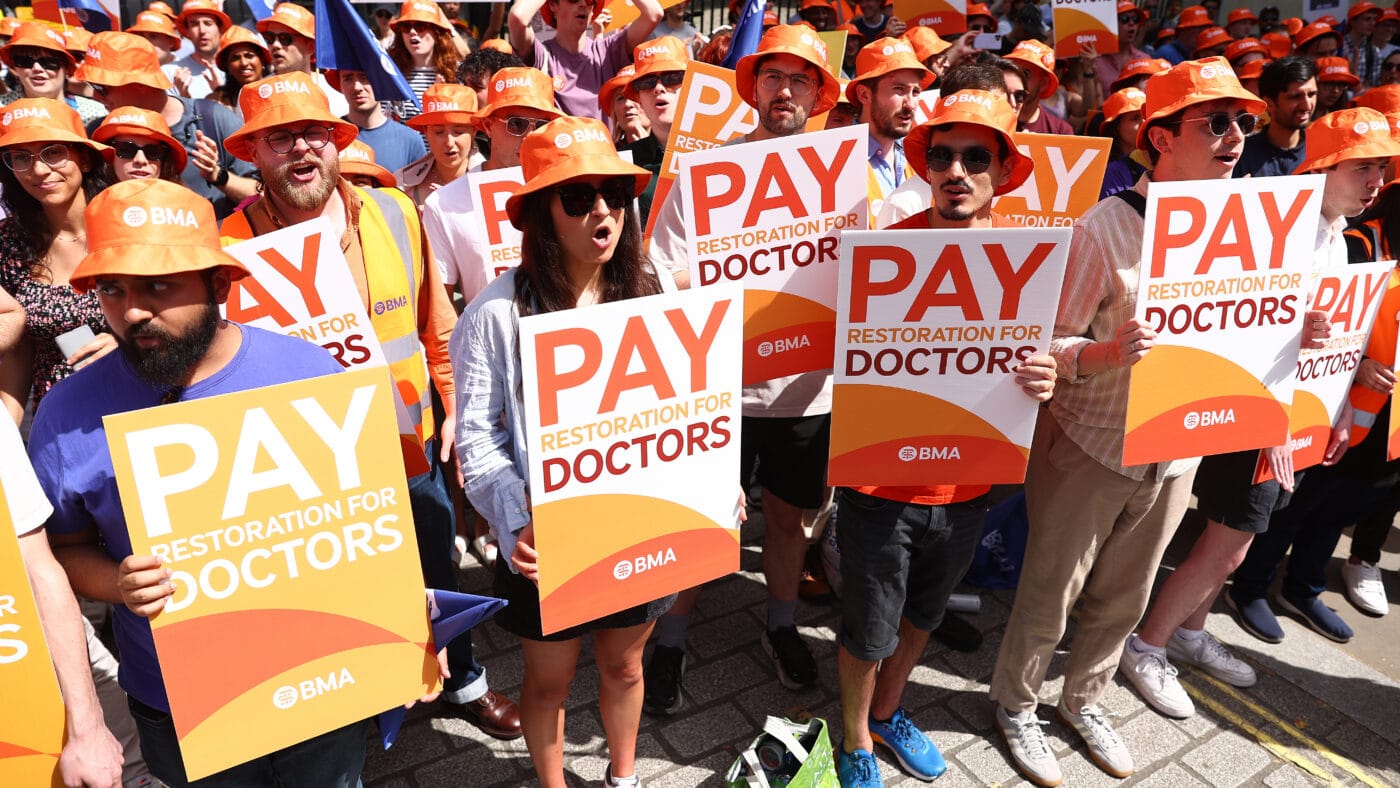The new Chancellor wants us to know she is taking the ‘difficult decisions’. She used those words no less than five times in yesterday’s half-hour speech. The problem is, there’s one very big area where that’s just not true: public sector pay.
Of the £22 billion ‘black hole’ in public finances which she blamed her predecessors for, £9.4bn is the cost of her own choice to agree the large pay awards recommended by the independent pay boards.
A third of that cost, we are told, will be ‘absorbed’ by current departmental budgets – budgets that are already unrealistic. Without sustainable economic growth, there is no way to pay for an ever-increasing public sector pay bill. We can only assume that the remaining billions will be funded by further spending cuts or tax increases to be announced on 30 October.
That might be a reasonable position to take if it weren’t for the fact that the Chancellor is setting some very bad precedents as a result.
Inflation is forecast to be around 2.5% this year and 2.2% next year. That means, at a time of extreme fiscal pressure, most public sector workers are getting a rise of at least double inflation. The BMA’s deal for junior doctors, at 22% over two years, goes well beyond that. Unsurprisingly, nursing unions are already talking about full pay restoration as a result.
Reeves is right of course, that there are costs to not settling – from ongoing strike action, or recruitment and retention crises – and there is a strong argument for a decent pay bump. But we also now know the cost of settling is very high, and the ‘difficult decision’ would have been to demand more in return.
The fundamental issue is that public services are chronically unproductive – they have still not returned to the levels of performance seen before the pandemic. And indeed, before the pandemic productivity was already stagnant – it fell in the NHS by 1.8% over the course of 2019/20. Spending more on workforces which are not delivering more is a losing game.
The Treasury should get better at making deals – buying public service reform in exchange for any pay increases.
Henry Newman, a former special adviser, wrote about how his team persuaded the Treasury to accept a pay deal, but were required to write them a letter in return promising that the independent review process would never recommend increases above inflation in the future – a letter his colleagues wrote with their ‘fingers crossed behind back’, knowing they could not do this. By the time the Treasury agrees to the pay deal, it’s already too late.
Instead, it should secure announcements up-front from workforces and unions that they will implement reforms to improve productivity.
Wes Streeting has already said ‘the NHS is broken’, and needs radical reform. Agreeing to more funding should be conditional on specific, public commitments from the NHS to work differently in ways it has been sluggish to do so far – like adoption of technology and structural reform.
That’s all before the question of performance. Any pay rises that the government funds should be in return for a concerted focus on poor performance. In the civil service, Reform’s research shows there is no focus on addressing repeat poor performance, meaning pay awards are given to many staff who don’t meet the standards. Since 2019, reports by the Police Pay Review Body have called for a plan to make part of their pay performance-based, but the Home Office and police forces have still not acted.
This pattern cannot be allowed to keep repeating. If the Chancellor wants to take the difficult decisions, then she needs a new approach to pay negotiations with the unions – one which doesn’t grow the pay bill faster than the economy, and secures genuine reform in exchange for any increases.
Click here to subscribe to our daily briefing – the best pieces from CapX and across the web.
CapX depends on the generosity of its readers. If you value what we do, please consider making a donation.


